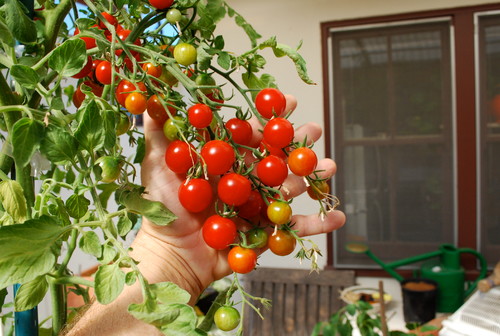When the COVID-19 pandemic first forced us to shelter in place, many homeowners reacted by taking up trowels and digging in the dirt. By planting victory gardens, folks tried to beautify their backyards and skip those long lines at the grocery store by raising their own crops of lettuce, tomatoes, and strawberries.
Alas, not every newbie gardener found success in these endeavors. Mixed with the joy of seeing those first green shoots poke up, or fruits budding on the vine, there was also frustration and bewilderment at crops that just didn’t take off.
But veteran gardeners know to learn from past mistakes as you plan your future garden. So in order to improve your chances for this year’s garden, take heed of the valuable lessons some folks learned after planting their first fruits and vegetables last year.
1. Don’t let tomatoes take over
Photo by Steve Masley Consulting and Design
Who knew you’re supposed to prune cherry tomatoes before they get too big? Not Liz Rossetti of Hamilton, MA.
“By not pinching them back as they grew, this vinelike plant went crazy and just took over the whole raised bed,” she explains. She was thrilled to have a bumper crop of tomatoes to harvest, but this could put neighboring plants in jeopardy.
“Homeowners also don’t check the size of the plants they’re putting in—and if a garden is oversown, many of the plants will eventually perish as they’re choked out,” says Emma Lam, master gardener and lead designer at A Small Green Space.
2. Don’t forget to feed the soil
Photo by Falon Land Studio LLC –
Kate Stober recently relocated to Tempe, AZ, and tried gardening there in February 2020. It’s definitely been a learning curve, she reports: “The seasons are topsy-turvy, the soil is terrible, and the sun kills everything.”
Despite these challenges, she was able to make a lot of things grow, especially when she realized she should boost her soil’s health with worm castings, a type of organic fertilizer.
Susan Brandt, expert soil tiller at Blooming Secrets, agrees with this savvy move: “One of the bigger mistakes people tend to make is not preparing their soil properly or enough—compost is another good fix here.”
Of course, to prepare your soil properly, you need to know what it’s like and what it’s lacking. You can get a soil test kit from any home improvement or gardening store. The results will tell you what you need to add to your soil to help your plants flourish.


